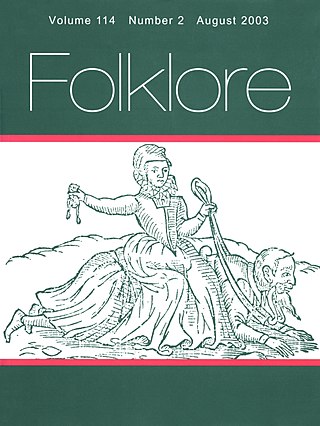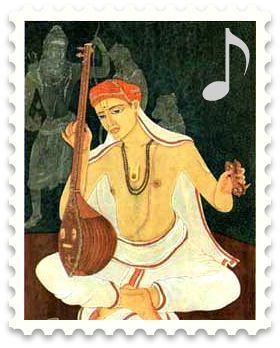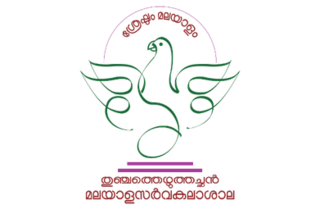
Albanian culture or the culture of Albanians is a term that embodies the artistic, culinary, literary, musical, political and social elements that are representative of ethnic Albanians, which implies not just Albanians of the country of Albania but also Albanians of Kosovo, North Macedonia and Montenegro, where ethnic Albanians are a native population. Albanian culture has been considerably shaped by the geography and history of Albania, Kosovo, parts of Montenegro, parts of North Macedonia, and parts of Northern Greece, traditional homeland of Albanians. It evolved since ancient times in the western Balkans, with its peculiar language, pagan beliefs and practices, way of life and traditions. Albanian culture has also been influenced by the Ancient Greeks, Romans, Byzantines and Ottomans.

Folklore studies is the branch of anthropology devoted to the study of folklore. This term, along with its synonyms, gained currency in the 1950s to distinguish the academic study of traditional culture from the folklore artifacts themselves. It became established as a field across both Europe and North America, coordinating with Volkskunde (German), folkeminner (Norwegian), and folkminnen (Swedish), among others.
Oral literature, orature, or folk literature is a genre of literature that is spoken or sung in contrast to that which is written, though much oral literature has been transcribed. There is no standard definition, as anthropologists have used varying descriptions for oral literature or folk literature. A broad conceptualization refers to it as literature characterized by oral transmission and the absence of any fixed form. It includes the stories, legends, and history passed through generations in a spoken form.
Jack David Zipes is a literary scholar and author. He is a Professor Emeritus in the Department of German, Nordic, Slavic and Dutch at the University of Minnesota.

Music of Jammu and Kashmir reflects a rich musical heritage and cultural legacy of the Indian-administered union territory of Jammu and Kashmir. Two different regions of Jammu and Kashmir consists the Jammu region and Kashmir Valley. Music of Kashmir Valley has influences of Central Asian music while music from Jammu region is similar to that of other regions of North India.

The Adivasi are heterogeneous tribal groups across the Indian subcontinent. The term is a self-designation adopted by those groups to assert indigeneity through socio-cultural identity. They are officially recognized as "Scheduled Tribes" in India and as "Ethnic Minorities" in Bangladesh. They comprise 8.6% of India's population and 1.1% of Bangladesh's; or 104.2 million in India, according to the 2011 census, and 2 million in Bangladesh according to the 2010 estimate.

The Bakarwal are a nomadic ethnic group who along with Gujjars, have been listed as Scheduled Tribes in the Indian Union Territory of Jammu and Kashmir and Ladakh since 1991. Bakerwal and Gujjar is the largest Muslim tribe and the third-largest ethnic community in the Indian part of Jammu and Kashmir.

Gujari is an Indo-Aryan language spoken by most of the Gujjars in the northern parts of India and Pakistan as well as in Afghanistan. It is a member of the Rajasthani group of languages.
The Gurjar are an agricultural ethnic community, residing mainly in India, Pakistan, and Afghanistan, divided internally into various clan groups. They were traditionally involved in agriculture, pastoral and nomadic activities and formed a large heterogeneous group. The historical role of Gurjars has been quite diverse in society: at one end they have been found related to several kingdoms and, at the other end, some are still nomads with no land of their own.
The Jammu and Kashmir Academy of Art, Culture and Languages is a society registered with the government of Jammu and Kashmir as a cultural organization for the promotion of regional languages, arts, and culture in Jammu and Kashmir.

Masud Choudhary was an Indian educator, social reformer, thinker and an administrator of Jammu and Kashmir union territory. He was the founding Vice Chancellor of Baba Ghulam Shah Badshah University in Rajouri, J&K. He was also the Chief Patron of the Muslim Gurjar Desh Charitable Trust. Choudhary served in the police and retired as the Additional Director of the General Police (IPS) in 2004.
Dr. Rafique Anjum ڈاکٹر رفیق انجم, a paediatrician by profession, is also a poet, Islamic scholar, and researcher of Jammu and Kashmir who writes in Urdu, Punjabi, and Gojri. He is presently working as Chair Professor in Tribal Studies at Baba Ghulam Shah Badshah University, Rajouri (J&K) and the Coordinator, Centre for Research in Gojri, Pahari & Kashmiri of the said University. He is the recipient of the state-level award for Excellence in Literature in 2007 and is a member of the General Council of Jammu and Kashmir Academy of Art, Culture and Languages. He has served as Registrar and Consultant Pediatrician in GMC Srinagar and Consultant Paediatrician in JK Health Services.
The Lower Elwha Klallam Tribe is a federally recognized Native American nation in the Pacific Northwest of the United States. The tribe is part of the larger Klallam culture, part of the Coast Salish people.

Thunchath Ezhuthachan Malayalam University, also called Malayalam University, is a state university in Tirur, Kerala, India.
The Society of Swedish Literature in Finland is a scholarly society for the collection, archiving and dissemination of knowledge about Finland-Swedish culture. SLS publishes scholarly literature, maintains archives and libraries, funds research and awards literary and scholarly prizes and scholarships. SLS's activity is made possible by private donations. SLS is one of the largest managers of private charitable funds in Finland.
The Pahari people or Pahari-speaking people is a cover term for a number of heterogeneous communities inhabiting in Indian-administered Jammu and Kashmir, Pothohar Plateau, the Hindkowans of Khyber Pakhtunkhwa and also some parts of Pakistan-administered Azad Kashmir who speak Pahari languages/dialects.

Javaid Rahi is an Indian author, researcher and tribal social worker. He is a writer and poet of Gojri, Punjabi and Urdu languages. He has written 25 books and edited over 300 books and issues of magazines in different languages especially in the field of tribal literature, history, and culture of pastoralists including Gujjars, Bakarwals, Shina-Dard, Sippis, and Gaddis— and other Scheduled Tribes groups of India.
Gogeumsochong (Korean: 고금소총) is a collection of eleven different anthologies of stories collected throughout the early to late Joseon. A replica copy of Gogeumsochong was published in 1958 by Folklore Research Association, containing 11 types of scruple and 800 pieces of plots. In 1970, a total 379 tales were collected under the same title which consisted of both Chinese-characters and Korean translations and in 2008, the entire original edition from Joseon was published in five manuals.
Dogri literature refers to the body of written and oral works in the Dogri language, predominantly spoken in the Jammu region of Jammu and Kashmir, India, and parts of northern Pakistan. Known for its linguistic rhythm and cultural expressions, Dogri literature refers to the traditions, lifestyle, and history of the Dogras. It encompasses poetry, prose, folklore, and modern literary forms, playing a significant role in preserving the region's heritage.

Pahari culture refers to the cultural practices, traditions, arts, languages, lifestyles, and social behavior of the people living in the hilly regions of northern India, Pakistan, and Nepal. The term "pahari" or "pahadi" originates from the Hindi word "pahad", denotes "mountain" or "hill", and collectively describes the inhabitants of mountainous areas, including parts of Himachal Pradesh, Jammu and Kashmir, Uttarakhand, and northern Pakistan, as well as the Himalayan foothills in Nepal.